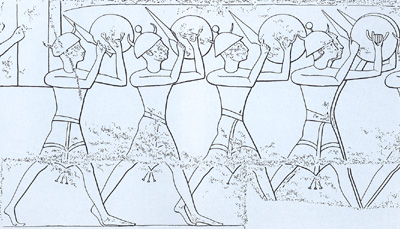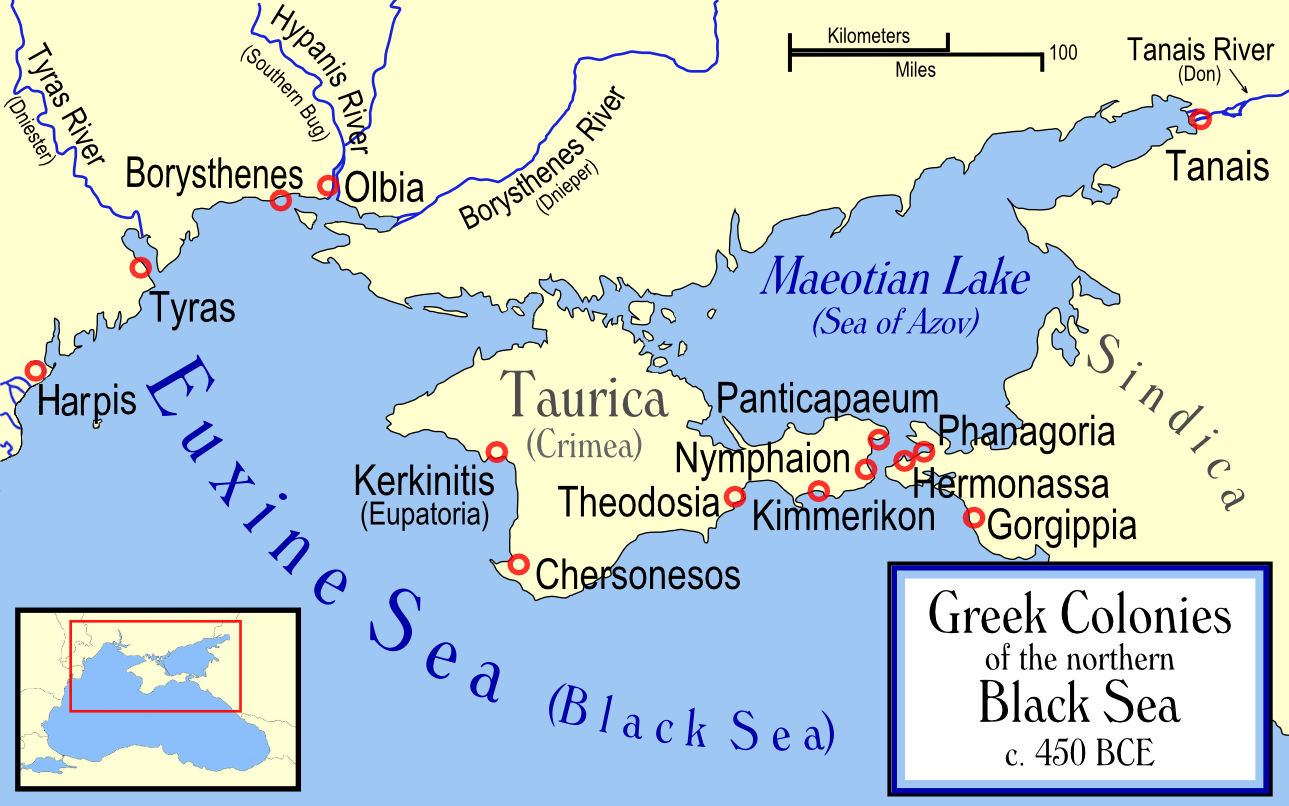how yes no 2
Junior Member
- Messages
- 863
- Reaction score
- 3
- Points
- 0
[FONT=Arial, Helvetica, sans-serif]The first mention of the name "Serbs" appears in the 1st century BC (69- 75), in the Historia naturalis by Plinius Caecilius Secundus, who states that Serbs (Serbi) live on the coast of the Black Sea. In the 2nd century, Claudius Ptolomaius writes in his Geographica that Serbs (Serboi, Sirboi - Serboi, Sirboi) live behind the Caucasus, near the hinterland of the Black Sea. The first mention of the Serbian name on their present ethnical location appears in 822, in the work of Frank chronicler Einhardt (Annales regni Francorum). [/FONT]
I know Zanipolo, those are Serians who live in Caspian highlands unguarded from Sarmatians....from them came into existance Siraces who lived north of Black sea and those who stayed became turkicized and their name was later recorded as Sabirs. Today Chuvash people carry part of their genetics.
Serians of Asia merged into Kurds and Pasthun Sarbans.
Serbs partly origin from Serians of Europe who lived around Danube and in my opinion that can be only Scordisci /Serdi....Serians are also incorporated in some other Slavic people
Seneca - Thyestes[369] Though kings should gather themselves together, both they who vex the scattered Scythians and they who dwell upon the Red Sea’s marge, who hold wide sway o’er the blood-red main with its gleaming pearls, they who leave unguarded26 the Caspian heights to the bold Sarmatians; though he strive against him, who dares on foot to tread the Danube’s waves27 and (whersoe’er they dwell,) the Serians28 for fleeces famous – ‘tis the upright mind that holds true sovereignty. He has no need of horses, none of arms and the coward weapons which the Parthian hurls from far when he feigns flight, no need of engines hurling rocks, stationed to batter cities to the ground. A king is he who has no fear; a king is he who shall naught desire. Such kingdom on himself each man bestows.
.....
27. i.e. the frozen surface.
28. The poet here conceives of the Serians as near by Scythia.
http://www.theoi.com/Text/SenecaThyestes.html
I've read the word "Artebuthzbrokhthui" and I immediately knew it had something to do with penis. You can find word "hui" still depicted in polish mural "art". :grin:
No we know that Noric was Slavic.
for your info, in Serbo-croat budža is "penis" as in text above... it also has a meaning of someone reach, powerful, the one who decides...
Well, they disappeared "without a trace" because they were conquered by other peoples, principally by the Romans. What remained of the Celtic-speaking peoples north of the Danube was absorbed by Germanic peoples. There are actually multiple references to this in various sources (Strabo, in particular, but also Ptolemy) how this happened.
Mario Alinei is Professor Emeritus at the University of Utrecht..Mario Alinei is a complete retard who claims that Indo-European languages in Europe can be traced back into the Paleolithic, which is, frankly, complete bullshit that is non-consistent with what we see in the language family. PIE was spoken much, much later. It makes no sense for Paleolithic hunter-gatherers to have words for horses, cows or agriculture if horse and cows had not been domesticated yet and agriculture had not been invented yet. :useless:
what is your title?
forum history teacher wanna be?
Read carefully....Did i ever mention where Helveti originally were?Please stop making up such nonsense. It totally defies any reality:
From Tacitus (Germania, XXVIII) we learn that the Helveti originally (before 1st century BC) lived in the approximate area of what is today Württemberg. Ptolemy (book 2, chapter 10) refers to this area as "Helvetian Desert". In the wake of the Gallic Wars, they migrated into Gaul but were defeated and their remnants settled down in what today is Switzerland and were subsequently latinized, and were later conquered by the Germanic Alemanni.
it is obvious that Croats are too white for native Mediteraneans....
they didnot live on Adriatic (Though Dalmatians who later merged into them did)
idea that part of Scordisci went back to Bohemia is very logical.. that is their homeland and was still free when Romans conquered Balkan....and this is in accordance with Russian primary chronicle mention of retreat to north due to spread of Vlakhs (Romans)....
second, Slavs are new tribal union.... probably made from Veneti, Thracians, Pannonians, Celtic Scordisci and Helveti, Scythians and Sarmatians...... Slavs didnot arrive from somewhere on east as you imagine....if such a mass of people existed on east they would be recorded.... those were separate tribes with similar languages and cultures that merged....... a hint we have about their unification is manuscript of Bavarian geographer that mentions state of Zeruiani that was so big that all Slavs come from it....it is clear that Zeruiani with big state can only be Serians of Seneca... it is further reasonable assumption that those are in fact Cimmerians...
what if some were Slavicized than or later?We have a similar story with the (Bohemian) Boii who were first ravaged by the Cimbri in the late 2nd century BC, and subsequently conquered by the Marcomanni in the 1st century BC. Strabo (in Book 7, Chapter 1.5) also makes reference to a "Boian desert".
All Celtic tribes south of the Danube (Vindelici, Norici, Pannonian Boii, Scordisci, etc.) were conquered by the Romans and became subsequently latinized.
With exception of the Cotini in the western Carpathians (mentioned by Tacitus at XLIII - and also Ptolemy book 2, chapter 10), there were no Celtic-speaking peoples remaining north of the Danube by 2nd century AD because whatever remained of them was absorbed by the Germanic peoples.
that is an assumption... because Slavs at that time still are not mention as tribal union... point is we do not really know what exactly was happening... if history is exactly known than forums like this would make no sense...
well there is another another explanation also
the mat from and theia
Mat means area land in Pelasgian compare it with Middle east
there are many Mat in Anatolia and levant and middle east
Mat Theia = land of Gods
ok 3 more propositions:
1) actually, in serbia "međa" is border of land that is someones property
so "medjeja" could have been border land...
nowdays another term is used for border lands "Krajina" derived from word "kraj" = end
Ukraine has that origin...also Krajina was name of Serb lands in Croatia....
2)
in illyrian "metu-" (between) corresponds to serbian "među"/"između" (between)
this is in fact PIE word... e.g. medio, middle..
"među" can be used in coin words to designate location between some things...
e.g. place between rivers would be "medjurečje"
"Medjurečje" is also name of Mesopotamia..
btw. don't you find it strange that Serbs have own word for Mesopotamia that is in fact description of location?
big state of Serians easily explains it....
in illyrian place between rivers would be "Metu" + word for rivers...
3)
one more suggestion it could have been about land of bears
in proto Celtic "matu-" bear , in Slavic word is "medved"....
even now Russians are identified with bears
btw. in Slavic med = honey, vid/ved = vision/ knowledge, in proto-Celtic honey = meli(t)
so the word for bear is possible example of loan to Celtic from Slavic...




